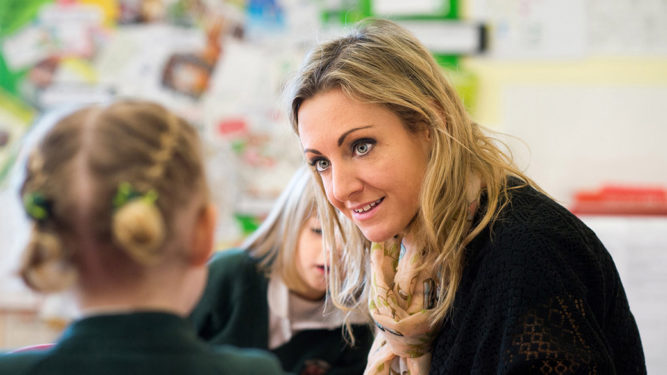The Independent Schools Inspectorate
Regulation and Independent Schools
There are many reasons why you might choose to send your child to an independent school. One of those reasons might lie in the very term ‘independent’: such schools are independent of certain government requirements and are free to take many actions and enact many policies in ways that suit their clientele, their pupils and their parents who have chosen enrolment at such places.
However, parents will be reassured that independent schools are not free of the requirement to be inspected, or quality assured, by an appropriately qualified body.
All independent schools are inspected and, therefore, regulated, both to ensure they are compliant with legislation in force in such matters as health and safety and safeguarding and to evaluate the quality of education and care they provide.
Around half of all independent schools belong to one of the seven professional organisations, such as the Headmasters’ and Headmistresses’ Conference (HMC) or the Independent Schools Association (ISA), that, together, make up the Independent Schools Council (ISC).
Schools which belong to such groups are known as ‘association schools‘. Others, which do not have such memberships are known, naturally, as ‘non-association schools‘.
The Independent Schools Inspectorate (ISI) inspects all ‘association schools’. The government’s Office for Standards in Education (OfSTED) inspects the remaining ‘non-association’ schools.
How does the ISI work?
The ISI is made up of full and part-time inspectors of schools. Such inspectors have served for many years at high quality independent schools and have undertaken extensive and demanding training in how to evaluate the work of schools. The inspection process for an association independent school consists of the following stages:
- first, a school completes an extensive self study in which it measures the quality of its own work both against national standards (in the case of such matters and health and safety and safeguarding) and against its own measures of success in educational matters
- second, the self study is received and reviewed by the ISI; a date for an ISI team visit to the school is then set
- third, the ISI team visit takes place; the size and type of school to be inspected determines the make-up of the inspecting team; the typical inspecting team consists of a team leader (who is, normally, an experienced headteacher or deputy from an independent school) and age range and subject specialists to ensure that the inspected school’s provision is evaluated by appropriately experienced and qualified inspectors (who are, themselves, serving teachers)
- as noted above, the inspection team ensures both compliance with national regulations and an evaluation of the quality of education provided, against the criteria which the school has set for itself
Of course, the above process is cyclical.
An independent school is always at some point in a continuum of self-study, planning for the next inspection visit, undergoing the visit, reviewing the visit and so on.
An ISI team visit takes place over a number of days and consists of extensive evidence-gathering by the inspectors. Inspectors visit classrooms, observe lessons, interview pupils, teachers, parents and staff, inspect premises and review documentation. Their aim is not only to ensure that the school is compliant with relevant government legislation regarding ‘non negotiables’ such as health and safety and safeguarding but also to evaluate the quality of educational provision against the school’s own criteria.
This last aspect of ISI’s work is very important to understand. Part of an independent school’s independence is that it does not have to follow the national curricula of England, Scotland, Wales or Northern Ireland. For example, an independent school may or may not choose to administer national curriculum tests, may substitute International (I) for regular GCSEs or the International Baccalaureate Diploma Programme (IBDP) for A Level. Thus, it would be inappropriate for such a school to be inspected by OFSTED, which has no competence in those areas.
How ISI assists in the inspection and regulation of British schools overseas
ISI also has a role in quality assuring British schools in other countries. In recent years, the government has introduced the status of British School Overseas (BSO), which indicates that a school has undergone an inspection and regulation regime which is aligned as closely as possible with the inspection process in the UK. At present, ISI is one of several British inspection bodies which are authorised to carry out such overseas scrutiny. Parents who are evaluating different schooling offerings for their children whilst overseas should look out for schools carrying the BSO badge.
What is the difference between the ISI and OfSTED?
ISI is authorised by the Department for Education to inspect and regulate association schools. OfSTED is the government office tasked with the inspection and regulation of schools maintained by government funds. Because such schools, unlike independent schools, are obliged to follow the national curriculum and to administer the same set of assessments such as GCSEs and A Levels, inspection and regulation of such schools is more of a ‘one-dimensional’ process. OfSTED inspects and regulates schools not against the criteria which schools have set for themselves in their self-evaluation processes but against criteria which are handed down by the Department for Education.
With regard to ISI, OfSTED also acts as a guarantor of the quality of the inspection process it administers. From time to time, therefore, an ISI inspection will be quality assured by an OfSTED inspector monitoring the school inspection site visit itself, as well as the documentation review that accompanies the actual site visit.
Further information:
Independent Schools Inspectorate
